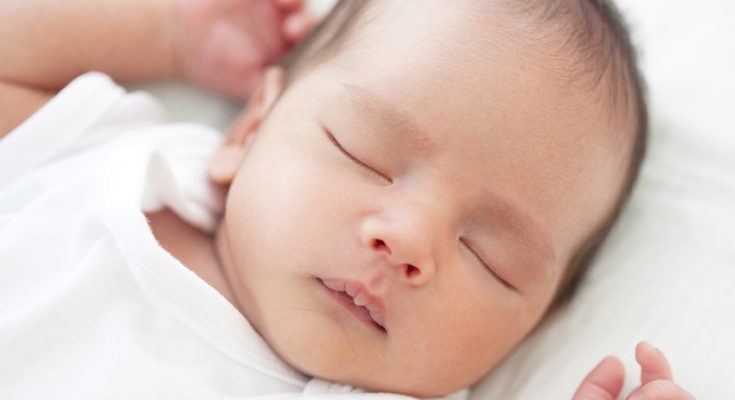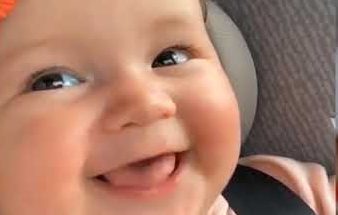Sleeping like a baby isn’t always as peaceful as it sounds. Babies often moan, groan, and whimper in their sleep; sweat profusely; pause between breaths; rock their body; and bang their head on the crib. This is all usually normal.
Why does my baby sweat so much while sleeping?
Some babies sweat profusely during the deepest part of their nightly sleep cycle ((REM sleep) and end up soaking wet. Babies spend much more time in the REM stage of sleep than adults or older children, making them more likely to sweat at night.
Your baby could also be sweating in their sleep because they’re hot. While you want your baby to be warm at night, take care to not let them get overheated, as overheating is a risk factor for sudden infant death syndrome (SIDS).
Babies don’t need to be bundled up at night: Dress your baby in however many layers you’d feel comfortable in and keep their room at a comfortable temperature.
If your baby consistently seems too hot at night, you might want to try a lighter swaddle blanket. Swaddles shouldn’t be so tight that they make it difficult for your baby to breathe or move their hips.
Stop swaddling your baby when they start trying to roll over, around 2 months old. (This is a good time to transition them to a sleep sack or similar wearable blanket that keeps their arms free.)
Don’t put any loose bedding in their crib, including quilts, blankets, pillows, bumpers, or stuffed animals. These items can cause an unsafe sleeping environment for your baby and increase the risk of SIDS.
As a general rule, if you’re too hot, your baby probably is too. If the house is kept cool and your baby isn’t in warm layers – but is still often sweaty – talk to their doctor.
Sweating is very common, but excessive sweating could mean that something isn’t right. For example, excessive sweating – especially when eating – can be a sign of congenital heart disease as well as sickness or infection.
Some possible scenarios and reasons for babies sweating include:
Overheating. Since babies (especially newborns) have an underdeveloped nervous system, they aren’t able to regulate their temperature as well as adults are. If your baby is sweating, try cooling their environment a little or taking off a layer. As a general rule, dress your baby in as many layers as you’re comfortable in with the given temperature.
Crying. Intense crying can cause your baby to work up a sweat.
Fever. If your baby’s sweating and you don’t see a reason for them to be hot, it’s a good idea to check their temperature. A temperature of 100.4 or higher is a fever. If your baby is younger than 2 months old and has a fever, call their doctor.
Congenital heart disease. Certain medical conditions, such as heart disease, can cause sweating in babies. Conditions like these are fairly rare, and babies are usually screened for serious congenital heart conditions at birth. But always talk to your baby’s doctor about anything you’re concerned about.
Other strange baby sleep habits
Here are other baby sleep habits that can worry new parents. Though strange, these behaviors are often normal. Sometimes, though, they can signal a medical problem.
Pausing between breaths
You’ve probably noticed your baby’s breathing rhythm changes as they sleep. They might breathe rapidly at first, then more slowly, before pausing for five to 10 seconds and resuming rapid breathing, and so on. Doctors call this “periodic breathing,” and it’s common in babies until they’re about 6 months old.
Possible cause for concern: Some infants might have pauses in breathing for up to 20 seconds, which is normal. This may be due to an immature brain stem (which regulates breathing). But if pauses last longer than 20 seconds, let your child’s doctor know. The doctor will want to investigate possible causes and ensure your baby is getting enough oxygen.
It’s also not unusual for a newborn’s hands and feet to appear bluish at times – this can happen if your baby is crying or coughing, or if they’re a bit cold. But if your baby’s forehead, tongue, nails, lips, or the trunk of their body looks persistently blue, they may be having trouble getting enough oxygen.
What to do about it: Putting your baby to sleep on their back is the single most helpful thing you can do to help them breathe easily. If your baby stops breathing, touch or nudge them gently to see whether they respond and take a breath. If they don’t respond, get help immediately.
If your baby stops breathing and you can’t wake them up, start administering resuscitation efforts right away and ask someone to call 911 for help. If your infant isn’t breathing, but still has a normal pulse, they need rescue breaths every 2 to 3 seconds. If they aren’t breathing and have a low pulse (less than 60 beats per minute), or no pulse, they need infant CPR, which includes 15 chest compressions between 2 rescue breaths.
If you’re alone, call 911 yourself after two minutes of CPR, and then resume CPR until help arrives or your baby starts breathing again. It’s always a good idea to have knowledge of infant CPR ahead of time in case you ever need it.



